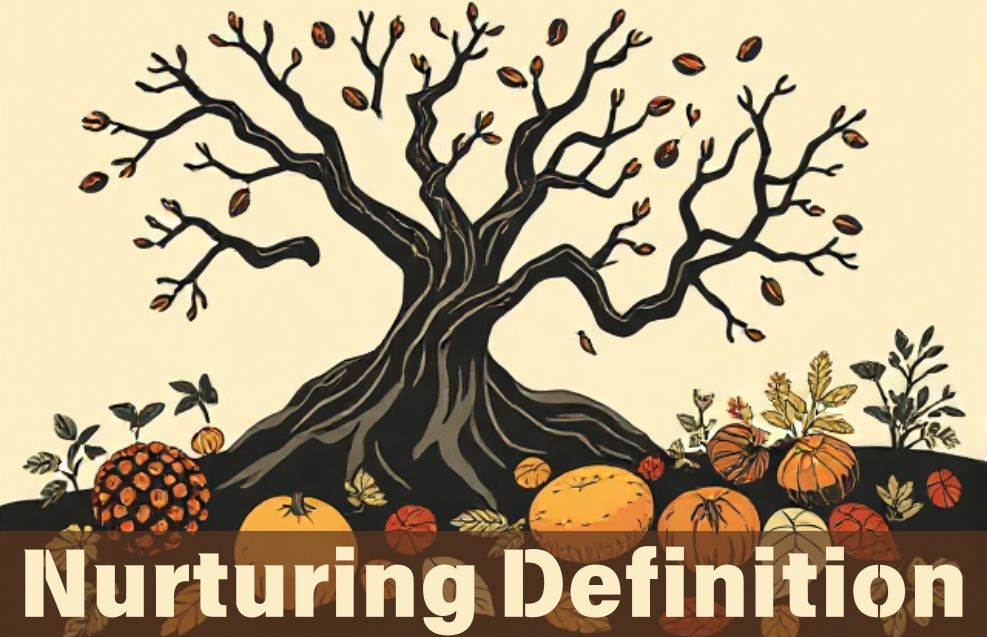When we explore the nurturing definition, we are delving into a concept that is at the heart of human relationships, education, and growth. Nurturing refers to the act of caring for and encouraging the growth or development of someone or something. However, this seemingly simple term carries layers of meaning that can differ across various fields and cultural perspectives. This blog takes a deep dive into the nurturing definition, examining its applications, importance, and interpretations across diverse contexts such as parenting, education, and professional development.
The Core of Nurturing: Breaking Down the Definition
The nurturing definition centers on care, support, and encouragement. At its essence, nurturing involves creating an environment conducive to growth and well-being. Whether in parenting, teaching, or mentoring, nurturing often requires emotional investment, patience, and active engagement. It is not just about providing for physical needs but also about fostering emotional and intellectual growth.
Let us explore how the nurturing definition unfolds across different domains:
Nurturing in Parenting
Parenting is perhaps the most direct application of the nurturing definition. Parents are expected to provide a safe and supportive environment that helps children thrive. This involves:
- Emotional Support: Understanding and validating a child’s feelings.
- Physical Care: Ensuring the child’s basic needs for food, shelter, and health are met.
- Encouragement of Growth: Providing opportunities for the child to explore their potential.
Read Also : What Is Situational Awareness and Why Does It Matter?
Comparative Perspective: Traditional vs. Modern Approaches
The nurturing definition in traditional parenting often emphasized discipline and providing for physical needs, with less focus on emotional and intellectual aspects. In contrast, modern parenting places greater emphasis on psychological well-being, emotional intelligence, and open communication. For instance, while a traditional parent might prioritize strict rules, a modern parent might adopt a more flexible approach to foster creativity and self-expression.
Nurturing in Education
The nurturing definition in education extends beyond teaching academic content. Educators are tasked with creating a supportive environment where students feel valued and motivated to learn.
The Shift from Rote Learning to Holistic Development
Traditional education systems often relied on rote learning, where the focus was on memorization rather than understanding. The nurturing definition in this context was limited to ensuring students met academic benchmarks. However, contemporary educational models advocate for a holistic approach, where nurturing involves:
- Promoting critical thinking.
- Encouraging creativity.
- Addressing individual learning styles and needs.
Nurturing in Professional Development
The nurturing definition in the workplace has evolved significantly. In earlier times, employers primarily focused on productivity, often overlooking the well-being of employees. Today, nurturing in professional settings involves:
- Mentorship: Guiding employees to achieve their career goals.
- Wellness Programs: Supporting mental and physical health.
- Skill Development: Offering training opportunities to enhance professional growth.
Comparative Analysis: Old vs. New Workplace Norms
Older workplace cultures often treated employees as mere cogs in a machine. In contrast, modern workplaces adopt a more nurturing approach, recognizing the value of employee satisfaction and well-being in driving long-term success.
Cultural Interpretations of Nurturing
The nurturing definition also varies across cultures. For instance:
- In collectivist cultures, nurturing often involves community-based support and shared responsibilities.
- In individualistic cultures, nurturing may emphasize personal growth and self-reliance.
Case Studies
- Collectivist Perspective: In countries like Japan, nurturing often involves collective caregiving, such as extended family involvement in raising children.
- Individualistic Perspective: In the United States, the focus might be more on fostering independence and self-esteem in children.
Psychological Aspects of Nurturing
The nurturing definition is closely tied to psychological theories, particularly attachment theory. A nurturing environment fosters secure attachment, which is crucial for emotional health and resilience. Research shows that children who grow up in nurturing environments tend to have better mental health and social skills.
Challenges in Nurturing
Despite its importance, nurturing is not without challenges. Time constraints, cultural norms, and personal limitations can hinder the ability to nurture effectively. For example:
- Time Management: Balancing nurturing responsibilities with work and other commitments.
- Cultural Expectations: Navigating societal pressures that may conflict with individual nurturing styles.
- Emotional Barriers: Overcoming personal struggles to provide care and support.
Strategies to Enhance Nurturing
Understanding the nurturing definition is just the first step. To effectively nurture, one must adopt practical strategies:
- Active Listening: Paying full attention to the needs and concerns of others.
- Empathy: Understanding and sharing the feelings of others.
- Positive Reinforcement: Encouraging desired behaviors through praise and rewards.
- Continuous Learning: Staying informed about effective nurturing practices through books, workshops, and peer discussions.
Conclusion: Embracing the Broad Scope of Nurturing
The nurturing definition encompasses a wide range of behaviors and attitudes aimed at fostering growth and well-being. Whether in parenting, education, or professional development, nurturing is a cornerstone of human interaction. By understanding its various facets and embracing its importance, we can create environments where individuals and communities thrive.
In comparing traditional and modern approaches, as well as cultural and domain-specific interpretations, it becomes clear that nurturing is both universal and adaptable. Its definition may shift depending on the context, but its core essence remains the same: caring for and encouraging growth. By applying this understanding to our daily lives, we can become better parents, educators, colleagues, and members of society.
What does the nurturing definition mean to you? Share your thoughts and experiences in the comments below!

